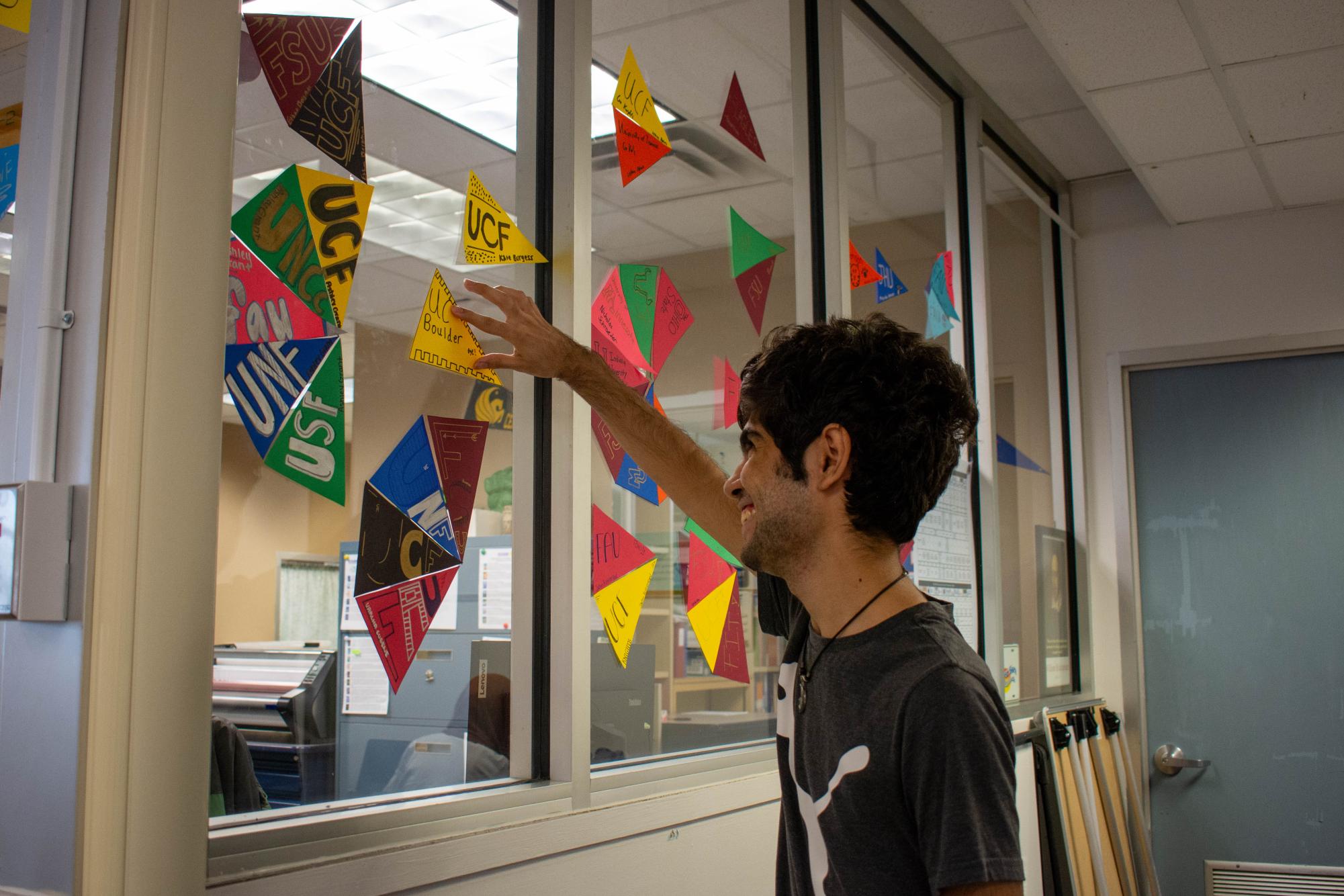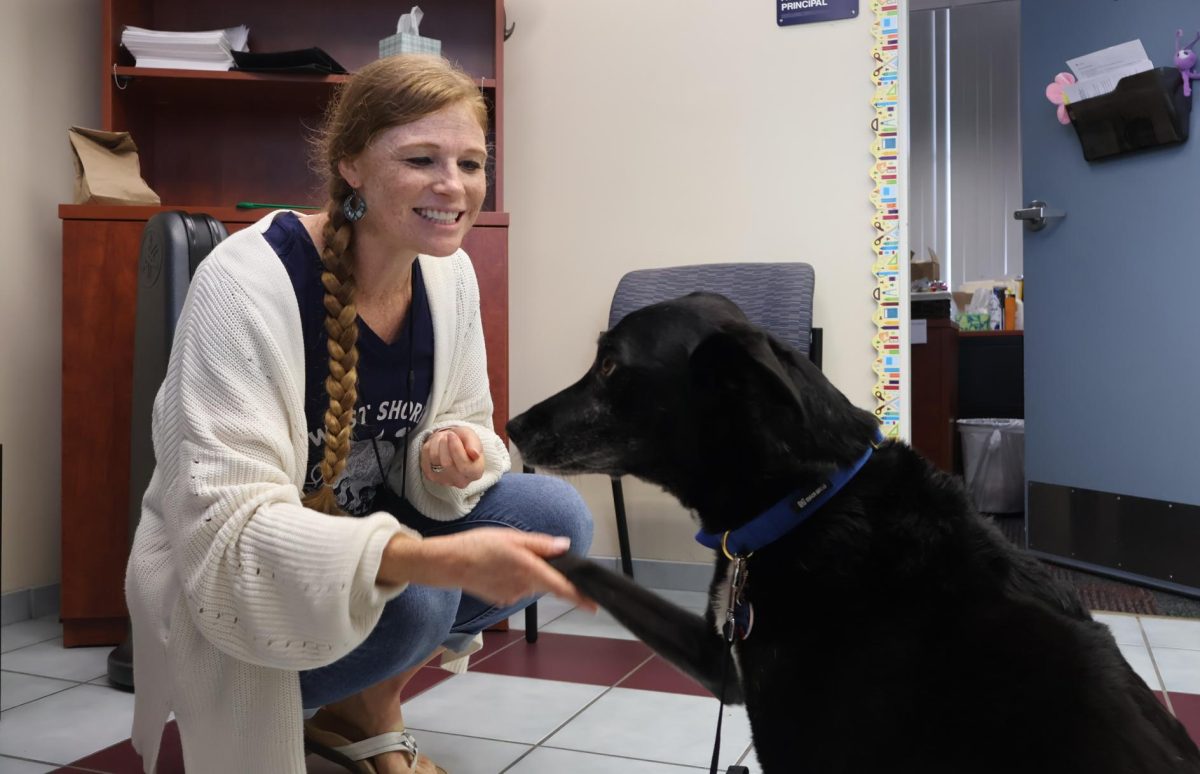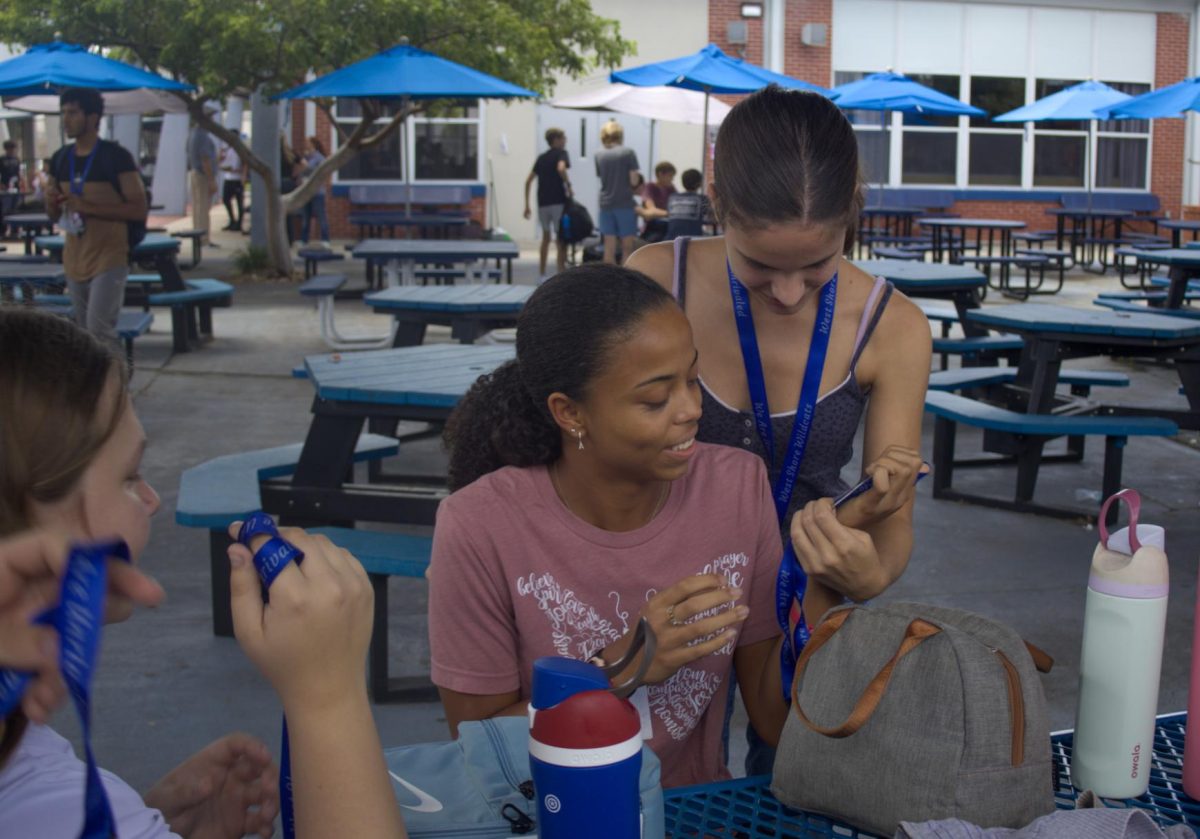Senior Kian Nezamoddini-Kachouie hits “submit” on his application to Columbia University, breathing out a sigh of relief as Common App’s submission confetti fills his computer screen. He applied to eight out-of-state and four in-state schools.
According to a survey by Intelligent of 1,000 Florida students, one in eight graduating high school students in Florida won’t attend a public college due to Gov. Ron DeSantis’ education policies.
“Most of the colleges that I would be comfortable learning in are out-of-state,” Nezamoddini-Kachouie said. “Florida education laws are in a downward spiral. I’m lucky to be a senior and get out of most of the crossfire that’s taking over high schools. I don’t want to be involved in wide-scale controversial institutional reform while I’m going through college.”
Many of the state’s college professors have expressed similar concerns. Recent legislation requires tenured professors to be reviewed every five years, prevents public universities from devoting state or federal funds to diversity, equity and inclusion programs and prohibits general education curricula that teach identity politics.
A proposed bill would leave faculty hiring to boards of trustees, permit colleges to review tenured professors “at any time” and eliminate degrees in subjects such as critical race theory and gender studies.
During this school year, West Shore seniors sent in 132 applications to out-of-state schools, which College and Career Specialist Angela Feldbush said is “substantially more” than the previous year.
“It’s important for people to live where they’re comfortable,” Feldbush said. “If they feel they’re being singled out, people will go to a place where they feel valued. Going out of state for college is the beginning of a trend where people leave Florida if they don’t feel that Florida values them.”
Feldbush’s daughter Anna, a 2018 West Shore graduate who attends Virginia Tech for neuroscience, said Florida’s economy requires an educated workforce, which could be impacted if people leave the state.
“Aerospace engineering is a huge industry, and we have the entertainment industry,” Anna said. “All of those positions are thought-based jobs where you have people with degrees. Even if that is an undergraduate degree, [people] aren’t going to be in Florida after those degrees are acquired.”
Angela Feldbush said she is concerned about professors leaving Florida due to tenure reviews. Tenured professors may only be fired under extreme circumstances such as program discontinuation.
“Getting rid of tenure will impact our ability to recruit high-quality professors to Florida,” she said. “Those are the people that have contact with students that can make or break your educational career. If your professor is feeling pressured to not say certain things, or feels like they don’t have a clear pathway forward, that’s going to create stress.”
In September, Janet Kistner, the vice president for faculty development at Florida State University, stated during a faculty senate meeting that the “political climate in Florida” played a role in increasing faculty turnover. In the past year, 37 professors have left the university for reasons other than retirement. In the past five years, the average was 23 professors.
At the University of Florida, the turnover rate has increased from seven percent in 2021 to 9.3 percent in 2023.
Carolyn Van Bergen, a tenured Eastern Florida State College English professor, said she “can’t imagine a drawback going out-of-state” for professors.
“You’re going to be paid more, you’re going to be respected more, you’re going to have less scrutiny and you’re going to have more academic freedom,” she said. “Problem is, jobs are hard to get, and there isn’t a lot of respect for the Florida education system, so that’s going to be a strike against you.”
Rule 6A-14.092, which took effect in 2022, requires each Florida College System institution to publish course syllabi for each section of a general education core course as early as feasible but at least 45 days before the first day of class for each term.
“It feels as if my position as a content expert is being undermined,” Van Bergen said. “I don’t even think you have to be a resident of Florida to review [the syllabus] and make objections. I’m not sure why a person who has no connection to the course and less expertise than I do gets to have a say.”
Van Bergen has students select the books they read in her class.
“Many of us have already changed our curriculums to try not to draw attention to anything that might draw the ire of certain politicians or political action groups,” Van Bergen said. “If the students have selected the reading, ifpeople find a reading objectionable, I then have the out of saying, ‘Yes, it was in the book that they selected,’ that the students had a choice.”
Anna Feldbush said she hopes to become a professor when she graduates.
“I would never consider working in Florida given the current circumstances,” she said. “Tenure is the shining light of academia in terms of job stability and financial stability. Why go to Florida where you have no job security and you have political influence over what you teach versus another state where you actually have academic freedom?”
However, senior Beatrice Pennington said the reviews benefit students.
“I have a sister who went to FSU and had a tenured professor,” she said. “He was like, ‘I can’t get fired. I’m going do whatever I want. I don’t care how miserable you are.’ The reviews are good because it means no professor’s going to get too comfortable. That’s a better way for students to get a good education that they’re paying thousands of dollars to get.”
At EFSC, tenured professors are reviewed every three years.
“There’s always been that question about tenure,” Van Bergen said. “Does that mean you never get reviewed, you have complete security and can do anything? It shouldn’t mean that, so I think the review process is fair.”
Anna Feldbush said in addition to legislation, governmental action involving the New College of Florida could influence students’ and educators’ decisions. In January 2023, DeSantis appointed six new conservative members to New College’s Board of Trustees, who fired the college’s president. Anna Feldbush graduated from New College in 2022.
“It’s incredibly upsetting to watch these topics that are scientifically valid and of scientific importance be banned because they are quote, unquote woke,” she said. “Two of the three main faculty that taught neuroscience at New College are no longer there because they banned their classes. It went from this place that was my home to a place that I felt disgusted to be in.”
Pennington said she understands why the board was replaced.
“I toured New College in tenth grade, and I wasn’t impressed, especially when they were like, ‘We don’t have letter grades,” Pennington said. “I’m like, ‘That’s what you do in preschool.’ I can see where it was coming from, like, ‘Hey, we need to take a step back and reevaluate what’s happening.’”
Nezamoddini-Kachouie said the changes at New College worry him.
“The fact that entire institutions’ identity can be reformed at the will of what the state thinks is correct is utterly terrifying,” Nezamoddini-Kachouie said. “It makes me feel like Florida isn’t a secure learning environment.”
Anna Feldbush said she stayed in-state for undergraduate education largely because of Bright Futures, a scholarship that covers 75 or 100 percent of in-state tuition for eligible students.
“It’s really hard to turn down basically-free college, but basically-free college is not a value if there’s academic censoring going on,” she said.
Pennington said Bright Futures played a significant role in her choice to stay in Florida for college as well.
“I see it as Florida is offering me this chance of getting pretty much free education, so I’m going to take that,” Pennington said. “If it means I’m in a state where I don’t fully agree with the politics, that’s OK because I’m saving a lot of money and I won’t be in student debt, which has wrecked people.”
Pennington said even with a potential loss of in-state students, universities will attract out-of-state students.
“I feel like [Florida colleges] would be affected because they’re losing [in-state] students and they’re losing professors, but also, no matter where you go, people are going to apply,” Pennington said.
Angela Feldbush said she is unsure whether recent political actions in education will have long-term effects.
“We need to wait to see whether that’s a long-term or a short-term impact,” she said. “Short-term, it’s necessary for students that weren’t able to finish their education to have safety; long-term, I don’t know if people look to out-of-state schools more, or if they feel safe at a private school in Florida where they’re more insulated from those political pressures. We’ve seen some short-term reactions as far as individual schools that have raised concerns. If it has a long-term impact, we all need to be concerned.”

Categories:
College contention
Florida’s new educational direction drives students, teachers out of state
March 9, 2024














